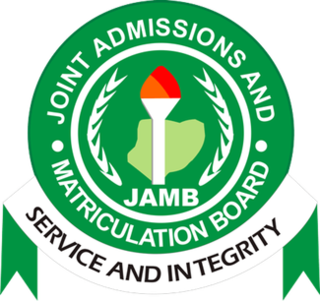
Tax law or revenue law is an area of legal study in which public or sanctioned authorities, such as federal, state and municipal governments use a body of rules and procedures (laws) to assess and collect taxes in a legal context. The rates and merits of the various taxes, imposed by the authorities, are attained via the political process inherent in these bodies of power, and not directly attributable to the actual domain of tax law itself.
A Master of Business Administration is a postgraduate degree focused on business administration. The core courses in an MBA program cover various areas of business administration such as accounting, applied statistics, human resources, business communication, business ethics, business law, strategic management, business strategy, finance, managerial economics, management, entrepreneurship, marketing, supply-chain management, and operations management in a manner most relevant to management analysis and strategy. It originated in the United States in the early 20th century when the country industrialized and companies sought scientific management.

The SAT is a standardized test widely used for college admissions in the United States. Since its debut in 1926, its name and scoring have changed several times. For much of its history, it was called the Scholastic Aptitude Test and had two components, Verbal and Mathematical, each of which was scored on a range from 200 to 800. Later it was called the Scholastic Assessment Test, then the SAT I: Reasoning Test, then the SAT Reasoning Test, then simply the SAT.

Legal education is the education of individuals in the principles, practices, and theory of law. It may be undertaken for several reasons, including to provide the knowledge and skills necessary for admission to legal practice in a particular jurisdiction, to provide a greater breadth of knowledge to those working in other professions such as politics or business, to provide current lawyers with advanced training or greater specialisation, or to update lawyers on recent developments in the law.

The Graduate Record Examinations (GRE) is a standardized test that is part of the admissions process for many graduate schools in the United States and Canada and a few other countries. The GRE is owned and administered by Educational Testing Service (ETS). The test was established in 1936 by the Carnegie Foundation for the Advancement of Teaching.

Matriculation is the formal process of entering a university, or of becoming eligible to enter by fulfilling certain academic requirements such as a matriculation examination.
A medical school is a tertiary educational institution, professional school, or forms a part of such an institution, that teaches medicine, and awards a professional degree for physicians. Such medical degrees include the Bachelor of Medicine, Bachelor of Surgery, Master of Medicine, Doctor of Medicine (MD), or Doctor of Osteopathic Medicine (DO). Many medical schools offer additional degrees, such as a Doctor of Philosophy (PhD), master's degree (MSc) or other post-secondary education.
An examination board is an organization that sets examinations, is responsible for marking them, and distributes the results. Some are run by governmental entities; some are run as not-for-profit organizations.
University admission or college admission is the process through which students enter tertiary education at universities and colleges. Systems vary widely from country to country, and sometimes from institution to institution.

The Examination for Japanese University Admission for International Students, more commonly referred to as simply the Examination for Japanese University Admission (EJU), is a standardized test which non-Japanese students hoping to attend undergraduate or graduate university programs in Japan are required to take and pass.
The West African Senior School Certificate Examination (WASSCE) is a type of standardized test in West Africa. Students who pass the exam receive a certificate confirming their graduation from secondary education. It is administered by the West African Examinations Council (WAEC). It is only offered to candidates residing in Anglophone West African countries. The academic school-leaving qualification awarded upon successful completion of the exams is the West African Senior School Certificate.

The Joint Admissions and Matriculation Board (JAMB) is a Nigerian entrance examination board for tertiary-level institutions. The board conducts entrance Unified Tertiary Matriculation Examination for prospective undergraduates into Nigerian universities. The board is also charged with the responsibility to administer similar examinations for applicants to Nigerian public and private monotechnics, polytechnics, and colleges of educations. All of these candidates must have obtained the West Africa Senior School Certificate (WASSCE) conducted yearly by the West African Examinations Council, WAEC, or its equivalent, National Examination Council (Nigeria), Senior School Certificate Examination, NECO SSCE.
Graduate Medical Program (GMP), or sometimes also known as Graduate Entry Program (GEP) or Graduate Entry Medicine (GEM), are medical programs usually of 4-years duration where applicants are university graduates who have taken aptitude tests such as the GAMSAT, UKCAT or MCAT. These aptitude tests are different from the UMAT test for high school graduates. Medical programs in the United States technically do not require the completion of a previous degree, but do require the completion of 2–3 years of pre-medical sciences at the university level and so are thus classified as second entry degrees. However, since in places such as Australia medical applicants were historically generally high school graduates and only recently have medical schools changed to requiring the completion of a previous bachelor's degree, the terms Graduate Medical Program and Graduate Entry Medicine arose to differentiate the new courses.
In South Africa, matriculation is the final year of high school and the qualification received on graduating from high school, and the minimum university entrance requirements. The first formal examination was conducted in South Africa under the University of the Cape of Good Hope in 1858. In general usage, the school-leaving exams, which are government-administered, are known as the "matric exams"; by extension, students in the final year of high school are known as "matriculants" or, more commonly, "matrics". Once the Matric year has been passed, students are said to have "matriculated".
A matriculation examination or matriculation exam is a university entrance examination, which is typically held towards the end of secondary school. After passing the examination, a student receives a school leaving certificate recognising academic qualifications from secondary-level education. Depending on scores or grades achieved, a student may then matriculate to university to take up further studies.

National Testing Service - Pakistan (NTS) is a nonprofit organization in Pakistan that administers academic performance evaluation tests. It is similar to Educational Testing Service (ETS) in the United States. NTS is a member of the International Association for Educational Assessment. It is also recognized by the Higher Education Commission.
Hocutt v. Wilson, N.C. Super. Ct. (1933) (unreported), was the first attempt to desegregate higher education in the United States. It was initiated by two African American lawyers from Durham, North Carolina, Conrad O. Pearson and Cecil McCoy, with the support of the National Association for the Advancement of Colored People (NAACP). The case was ultimately dismissed for lack of standing, but it served as a test case for challenging the "separate but equal" doctrine in education and was a precursor to Brown v. Board of Education, 347 U.S. 483 (1954).
In Nigeria, the academic grading system scales from A to F (fail). Below is the grading system of Nigerian schools.







